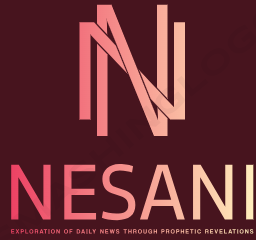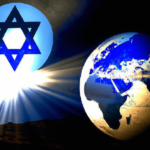In this thought-provoking article, we explore the intricate relationship between the Israel-Palestine conflict and end-time scenarios. With a friendly tone, we will delve into why this long-standing issue has captured the attention of scholars, religious groups, and political analysts alike. By examining the historical context and its significance in various belief systems, we aim to shed light on the complex nature of this conflict and its potential implications for the future. So, grab your cup of coffee and join us on this captivating journey of discovery.
The Historical Context of the Israel-Palestine Conflict
The Origins of the Israel-Palestine Conflict
The Israel-Palestine conflict has its roots in the late 19th and early 20th centuries when Zionism, a Jewish nationalist movement, began advocating for the establishment of a Jewish state in Palestine. This idea clashed with the Arab population who also claimed historical and cultural ties to the region. The conflict intensified with the issuance of the Balfour Declaration in 1917, in which the British government expressed its support for a “national home for the Jewish people” in Palestine. The declaration fueled tensions between Jews and Arabs, leading to a series of violent clashes and clashes that would persist throughout the 20th century.
Key Events Leading to the Conflict
Several key events have contributed to the escalation of the Israel-Palestine conflict. The 1947 United Nations Partition Plan, which proposed dividing Palestine into separate Jewish and Arab states, was met with resistance from Arab countries and Palestinian nationalists who opposed the establishment of a Jewish state. The ensuing Arab-Israeli War of 1948 resulted in the displacement of hundreds of thousands of Palestinians and the establishment of the state of Israel. This event, known as the Nakba or “Catastrophe” among Palestinians, remains a deeply significant and emotive aspect of the conflict.
Following the 1967 Six-Day War, Israel occupied the West Bank, including East Jerusalem, and the Gaza Strip. This occupation, along with the construction of Israeli settlements in these territories, has been a major source of contention and a significant obstacle to peace negotiations. The Oslo Accords of the 1990s aimed to address these issues and establish a framework for a peaceful resolution but faced numerous challenges and ultimately failed to bring about a comprehensive solution.
International Involvement in the Conflict
The Israel-Palestine conflict has drawn significant international attention and involvement. The United States, as a major global power and ally of Israel, has played a central role in mediating peace negotiations and providing military aid to Israel. Other countries, particularly those in the Arab world, have shown support for the Palestinian cause and have been critical of Israel’s policies.
The United Nations has also been actively involved in addressing the conflict. The General Assembly passed multiple resolutions affirming the rights of the Palestinian people and calling for a two-state solution. Additionally, the UN Relief and Works Agency for Palestine Refugees in the Near East (UNRWA) has been providing humanitarian assistance to millions of Palestinian refugees since its establishment in 1949.
Religious Significance of Israel and Palestine
Israel and Palestine in Biblical Prophecy
The region of Israel and Palestine holds immense religious significance for Judaism, Christianity, and Islam. In the Bible, the promised land is described as the land given by God to the Israelites, and Jerusalem is depicted as a sacred city. This religious narrative has shaped the Jewish connection to the land of Israel and their belief in a divine promise to establish a Jewish state.
The Role of Jerusalem in End-time Scenarios
Jerusalem is central to the eschatological beliefs of all three Abrahamic religions. For Christians, the return of Jesus is closely associated with Jerusalem, with many believing that it will serve as the location for Christ’s second coming and the establishment of his millennial kingdom. In Jewish messianic beliefs, the rebuilding of the Third Temple in Jerusalem is seen as a prerequisite for the coming of the Messiah. Islamic eschatology also holds Jerusalem as a central focal point, with the Al-Aqsa Mosque in Jerusalem believed to be the location of the Prophet Muhammad’s ascent to heaven.
Religious Claims and Considerations
Religious claims to the land and holy sites in Israel and Palestine have complicated the conflict. Competing narratives and deeply-held religious beliefs have fueled the drive for national sovereignty and control over these areas. The religious significance attributed to the land has also influenced political decision-making and hindered the prospects of compromise and resolution.

The Israel-Palestine Conflict and Global Geopolitics
The Influence of the Israel-Palestine Conflict on Regional Stability
The Israel-Palestine conflict has had significant implications for regional stability. The unresolved nature of the conflict has perpetuated a cycle of violence and mistrust, fueling resentment and radicalization among populations in the Middle East. The conflict has also been used as a rallying point and justification for extremist groups, exacerbating tensions in the region and threatening regional security.
International Alliances and Support
The Israel-Palestine conflict has generated widespread international interest and alliances. The United States, as a key ally of Israel, has provided significant military, economic, and diplomatic support. Arab countries, on the other hand, have been supportive of the Palestinian cause, providing financial aid and diplomatic backing. This divide has further complicated efforts to reach a peaceful resolution and has influenced the dynamics of global geopolitics.
Consequences for International Relations
The Israel-Palestine conflict has affected international relations in various ways. The conflict has strained relations between countries that support different sides, resulting in regional polarization and strained diplomatic ties. Additionally, international organizations such as the United Nations have faced challenges in balancing the interests of various member states and finding a consensus on the issue. The implications of the conflict reverberate beyond the region, impacting global discourse on human rights, self-determination, and territorial disputes.
Various Perspectives on Israel-Palestine in End-time Scenarios
Christian Eschatological Views
Christian eschatological views on the Israel-Palestine conflict vary. Some Christians believe that the establishment of the state of Israel in 1948 fulfills biblical prophecies and signals the imminent return of Jesus. Others interpret the conflict within a broader understanding of the end times and view it as a sign of the world’s spiritual decline and the need for repentance and salvation.
Jewish Messianic Beliefs
Jewish messianic beliefs play a significant role in understanding the Israel-Palestine conflict. While not all Jews hold messianic beliefs, there are those who believe in the coming of the Messiah and the rebuilding of the Third Temple in Jerusalem. The conflict is seen as intertwined with these beliefs, with the Jewish longing for the restoration of their homeland and the fulfillment of biblical prophecies.
Islamic Perspectives
Islamic perspectives on the Israel-Palestine conflict are also diverse. While the conflict is often viewed through the lens of Israeli occupation and perceived injustice towards Palestinians, there is significant variation among Islamic interpretations. Some Muslims believe that the liberation of Jerusalem and the establishment of a Palestinian state are fundamental to the fulfillment of Islamic prophecies, while others prioritize social justice and the protection of human rights for all people involved in the conflict.

The Anticipated Impact of the Israel-Palestine Conflict on the End Times
The Role of Israel-Palestine in Armageddon
Within certain eschatological beliefs, the Israel-Palestine conflict is seen as closely tied to the prophesied battle of Armageddon. Armageddon is depicted as a final cataclysmic battle in which the forces of good and evil clash, leading to the ultimate victory of righteousness. Some interpretations suggest that the Israel-Palestine conflict is a precursor to this battle, with Jerusalem serving as a focal point for the epic final confrontation.
The Rebuilding of the Third Temple
The rebuilding of the Third Temple in Jerusalem is a significant event foreseen by some religious groups. For Jewish believers, the Third Temple symbolizes the physical and spiritual restoration of the nation of Israel. The discussion surrounding the Third Temple and its potential construction has further heightened tensions in the region, as it could have far-reaching implications for the status quo and the peace process.
The Return of the Messiah
Many religious traditions hold expectations of the return of a messianic figure. In Christian beliefs, this is associated with the second coming of Jesus, while in Jewish beliefs, it refers to the arrival of the long-awaited Messiah. The Israel-Palestine conflict is often seen as a critical element in these end-time scenarios, with its resolution potentially paving the way for the return of the messiah figure and the establishment of a new era of peace and justice.
Escalating Tensions and the Likelihood of Fulfilling End-time Scenarios
Recent Developments in the Israel-Palestine Conflict
In recent years, tensions in the Israel-Palestine conflict have escalated. Factors such as the expansion of Israeli settlements, the lack of progress in peace talks, and acts of violence on both sides have contributed to the deterioration of the situation. The absence of a viable peace process has led to frustrations and disillusionment among both Israelis and Palestinians, making the path to a peaceful resolution even more challenging.
Potential Triggers for a Wider Regional Conflict
The Israel-Palestine conflict has the potential to trigger a wider regional conflict due to its geopolitical and religious significance. Escalations in violence, such as the conflicts in Gaza, have led to increased instability and the involvement of neighboring countries. The ongoing struggle for control over Jerusalem, coupled with historical and social tensions, creates a volatile environment that could potentially draw regional powers into a larger-scale conflict.
International Efforts to Achieve Peace
Despite the complexities of the Israel-Palestine conflict, numerous international efforts have been made to achieve peace. Various frameworks and peace initiatives have been proposed, such as the Camp David Accords, the Oslo Accords, and the Middle East Peace Quartet. However, these efforts have faced significant challenges, including issues of trust, deep-rooted grievances, and diverging political interests. Nonetheless, international organizations, governments, and civil society continue to work towards finding a viable and lasting solution to the conflict.
The Humanitarian Crisis and the Israel-Palestine Conflict
Human Rights Violations and Impacts on the Palestinian People
The Israel-Palestine conflict has resulted in grave human rights violations and a profound humanitarian crisis, particularly for the Palestinian population. The construction of Israeli settlements, the erection of barriers and checkpoints, and the imposition of restrictions on movement have severely affected the daily lives of Palestinians, impeding their access to education, healthcare, and livelihood opportunities. Furthermore, the frequent outbreaks of violence have led to the displacement of families, loss of lives, and extensive destruction of infrastructure.
The Role of International Aid and Support
International aid and support have played a crucial role in addressing the humanitarian crisis caused by the Israel-Palestine conflict. Humanitarian organizations and international donors provide essential assistance, including food, shelter, healthcare, and education, to vulnerable Palestinian populations. However, the ongoing nature of the conflict and the polarized political environment make the delivery of aid challenging, with aid agencies often facing restrictions and obstacles imposed by various actors involved in the conflict.
Efforts for Peace and Reconciliation
Efforts to promote peace and reconciliation between Israelis and Palestinians have been ongoing. Grassroots initiatives, civil society organizations, and peace activists on both sides have worked tirelessly to foster dialogue, build mutual understanding, and promote coexistence. These efforts play a critical role in bridging societal divides and creating spaces for empathy and understanding, contributing to the larger context of peacebuilding and conflict resolution.
Intertwining of Religious and Political Factors in the Israel-Palestine Conflict
Political Interests and Influence
Political interests and influence shape the Israel-Palestine conflict significantly. Domestic political considerations, security concerns, and historical narratives influence the policies and actions of both Israeli and Palestinian leadership. Additionally, external actors, such as major powers, neighboring states, and non-state actors, have different political interests and exert influence on the conflict, further complicating the pursuit of a resolution.
Religious Fundamentalism and Extremism
Religious fundamentalism and extremism have also impacted the Israel-Palestine conflict. Extremist individuals and groups, espousing extremist interpretations of religious texts, have used violence and terrorism to further their goals. These acts undermine the prospects for peace and reconciliation, heighten tensions, and perpetuate cycles of violence. It is essential to differentiate between religious belief and extremist interpretations that incite violence.
Efforts for Interfaith Dialogue and Peacebuilding
Interfaith dialogue and peacebuilding initiatives offer a counter-narrative to extremist ideologies and promote understanding and cooperation among different religious communities. These initiatives aim to foster respectful dialogue, identify shared values, and address grievances. Through their work, interfaith organizations and activists create spaces for collaboration and promote peaceful coexistence as essential components of efforts toward a resolution of the Israel-Palestine conflict.
Lessons from History and Prospects for Resolution
Past Attempts for Peace and Peacebuilding
Several past attempts have been made to achieve peace and peacebuilding in the Israel-Palestine conflict. From the Oslo Accords to the Camp David Summit, these efforts have highlighted the complexity of the conflict and the challenges involved in building trust, addressing disparities, and finding common ground. Despite the failures, these attempts have provided valuable lessons on the importance of inclusivity, comprehensive negotiations, and sustained international support.
Lessons from Successful Conflict Resolution Processes
Successful conflict resolution processes from around the world offer insights that may be relevant to the Israel-Palestine conflict. Examples include the Good Friday Agreement in Northern Ireland and the transition to multiracial democracy in South Africa. These cases demonstrate the significance of inclusive dialogue, addressing grievances, promoting justice and reconciliation, and implementing long-term peacebuilding measures. The experiences gained from these processes can inform future approaches to the Israel-Palestine conflict.
The Need for Open Dialogue and Negotiation
An open dialogue and negotiated settlement remain essential for resolving the Israel-Palestine conflict. Creating an environment conducive to negotiation, with a focus on mutual respect, acknowledging historical narratives, and addressing grievances, is critical. International mediators and peacebuilders must facilitate meaningful dialogue while also ensuring that the voices of all affected parties, including marginalized groups, are heard and considered. This inclusive and participatory approach can contribute to a more sustainable and just resolution.
Conclusion
The Israel-Palestine conflict is a multi-faceted issue that intertwines history, religion, politics, and regional dynamics. Its significance in end-time scenarios highlights religious beliefs and their impact on various perspectives. The conflict has far-reaching implications for global geopolitics, regional stability, and humanitarian concerns, necessitating ongoing international efforts toward peace and reconciliation. By recognizing the complex historical context, addressing the religious and political factors at play, and learning from both past failures and successful conflict resolution processes, there is hope for a future where Israelis and Palestinians can coexist in peace and prosperity.




